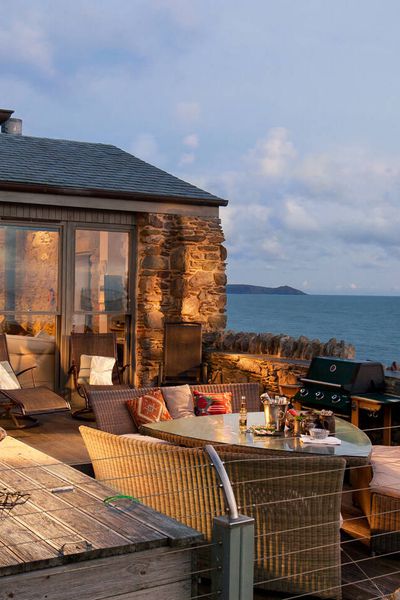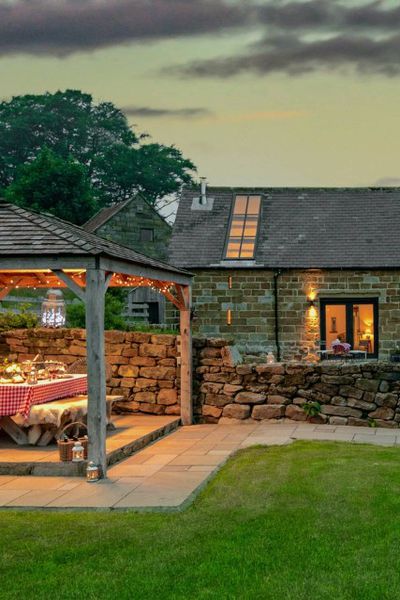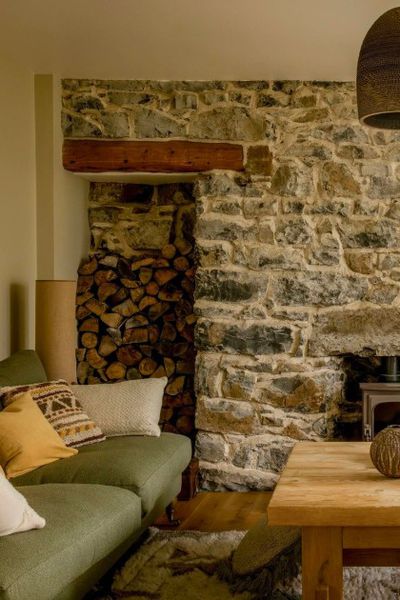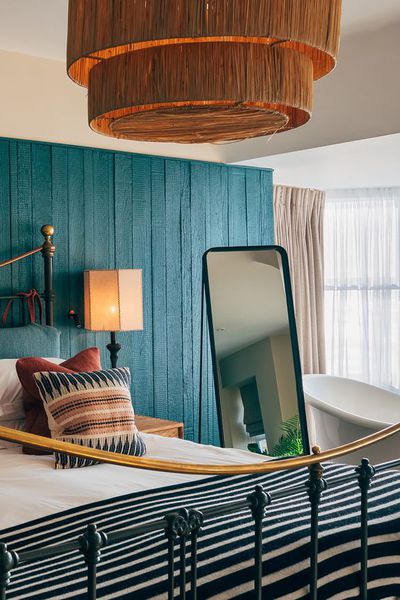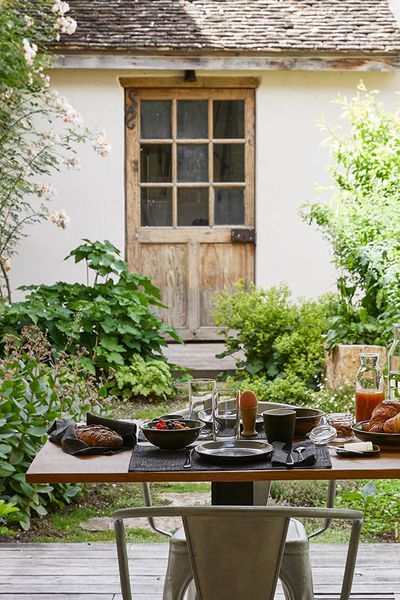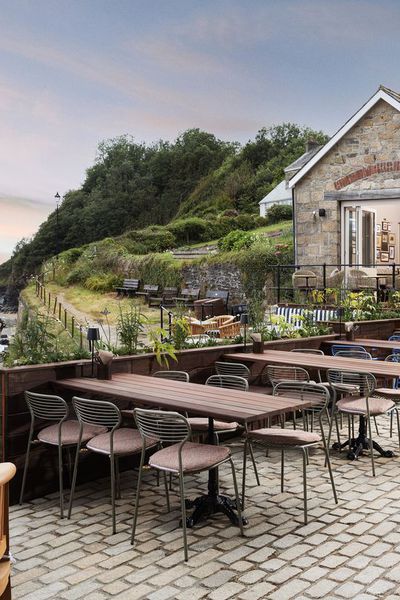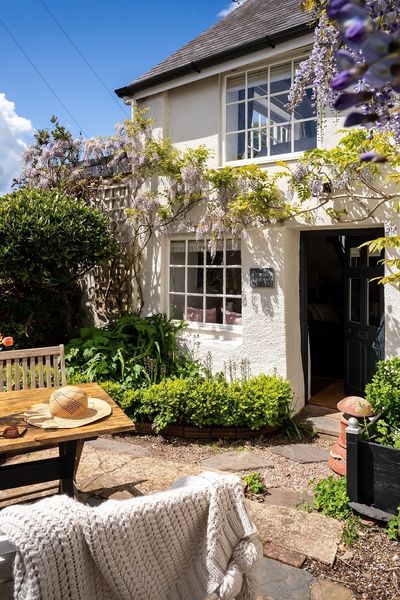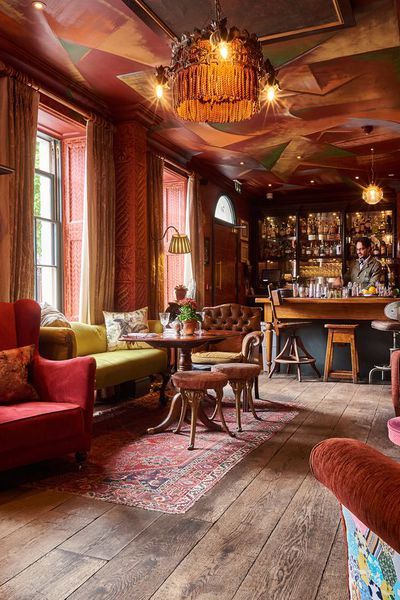I walked up the cobbled streets of Labro with my companion, Ivan. His home town is clustered on a hilltop an hour or so north of Rome and he painted a sad picture of the countryside’s fortunes, telling me, “There are now around 1,500 completely abandoned villages”. We stopped outside his home and looked down the valley to the distant lake and mountains. Despite its spectacular beauty, it was easy to see how somewhere this remote would struggle to survive in an era of seemingly unstoppable urban drift. But, thanks to an ingenious community initiative, Labro has been saved from the desertion that has befallen its neighbours.

That initiative is ‘Alberghi Diffusi’, which roughly translates as scattered hotels. It was launched in the 1980s to bring new life to forgotten communities, largely those being abandoned rather than those already empty. Once village life has flickered out it is almost impossible to rekindle it, as the clearances in Scotland demonstrated with heartbreaking finality. But where there is life there is hope, and this imaginative concept can build on it.
In an Albergo Diffuso, one central house or apartment acts as a reception area and office, and the bedrooms are scattered around the village. Guests use the local shops and cafés, but come to the centre, perhaps, for breakfast and advice.
Labro, my first encounter with the concept, was once owned by noble families, but most of them left for South America after the last war, leaving the village half empty. A young Belgian architect, Ivan van Mossevelde, visited in 1968 and adopted the village as his life’s mission. His aim was to restore the houses and bring new blood into the community. There was much architectural work to be done, but legal hoops to be navigated first. On one glorious day, he assembled 60 of the village’s property owners and bought them all out – for a song.
It was easy to see how somewhere this remote would struggle to survive in an era of seemingly unstoppable urban drift

He joined the albergo diffuso movement and now there are two houses, two apartments and three bedrooms scattered around the village, each one cleverly redesigned by Ivan. The local family restaurant thrives and blood pumps through the village’s veins. I was deeply impressed by Ivan’s Idealism, for this was an aesthetic and social project, never a commercial one. The work has been enormous and inclusive; teams of trainee architects from Belgium gave their time for free and young locals re-laid cobbles and steps under the watchful eyes of elder craftsmen. Ivan attended to the whole fabric of the village rather than just to his own houses. What, otherwise, would be the point?
Many Italian regions have created their own regulatory versions of the idea, with such enthusiasm that there are now over a hundred such alberghi diffused throughout Italy, with nearly every one providing a noble example of hard work and idealism. In Portico di Romagna there is Marissa, who struggled to make a living from her old convent hotel. Once she decided to join the albergo diffuso system she took on other places, even a palazzo, and the village now buzzes with new life. The hotel, Marissa explains, has not one but two lobbies, the second being the village square. She has opened a school for the teaching of Italian and three artisan shops – all in a place of fewer than 400 people. The locals see the hotel guests as their guests too; they are all in it together.
There are now over a hundred such alberghi diffused throughout Italy, with nearly every one providing a noble example of hard work and idealism

Matera, to the east of Naples, was another village clinging desperately to the top of a hill. It was also saved from gradual decline largely by one person’s passion. Margareta Berg drifted here as a wide-eyed young woman in the 1980s and has, rather as the young Belgian architect did in Labro, poured a life of energy and creativity into it. She linked up with a young Italian/Swede to make it all happen, and the cave dwellings of the village, many now part of the albergo diffuso, have been their canvas. A declaration of Matera as a World Heritage site was a welcome boost.
I spoke at length to Giancarlo Dall’Ara, the unpaid President of the Association and a man entirely devoted to re animating these villages. His greatest successes are those where life has returned, jobs have been saved or created, and the Italian identity given fresh dignity. “It is impossible for dishonesty and greed to take hold in alberghi diffusi”, he told me. A commitment to the community is built into the fabric of the idea, just as the houses make up the villages. They are inseparable.
There are other hamlets in Italy that have been almost entirely taken over by large hotels or tourist organisations, and this has been another route to saving many. Even chapels and churches have been restored and somehow woven in to the hotel system. The results can be spectacular, yet I am struck by the advantages of the albergo diffuso concept over that more domineering approach. A project that engages everybody simply must have a longer, richer life than one run from the top down. It’s this heartfelt belief that had me transfer my own company to employee ownership.
A commitment to the community is built into the fabric of the idea, just as the houses make up the villages. They are inseparable.

Giancarlo has woven all these alberghi into one association and has encouraged local regions to create a regulatory umbrella. He sees the history of Italy as a world of interlocking stories. The alberghi are a way of making visitors a part of that story and of keeping it being told. If you are sleeping in the restored cave of a Matera house, or lunching on a tiny stone terrace perched over the valley of Labro, you have to duck to avoid the character and the history. The families who lived here, suffered, prospered, perhaps emigrated, have not been, and cannot be, lightly dismissed.
We live in a time when tourism as an industry is having to take a hard look at itself. All over Europe cities are fighting back against what they see as invasive waves of visitors, often brought in by the modern landing craft that are cruise ships. Rents are driven up beyond the means of locals, shops switch from selling food to selling souvenirs, piazzas and plazas are filled with insensitive aliens rather than friends. The concept of the Albergo Diffuso offers hope: a more sensitive, scattered, integrated form of tourism.
Revitalised villages might well drive bigger, self-sufficient communities, helping to return to many a lost sense of belonging and thus a care and responsibility for their homes and environment. The Albergo Diffuso movement began nobly, when the Friuli area was devastated by earthquakes. It was a way of bringing life back and recreating damaged communities. With a little luck and a lot of hard work, it might just inspire something similar all over the world. Giancarlo, for one, is up for the challenge.
The concept of the Albergo Diffuso offers hope: a more sensitive, scattered, integrated form of tourism.
